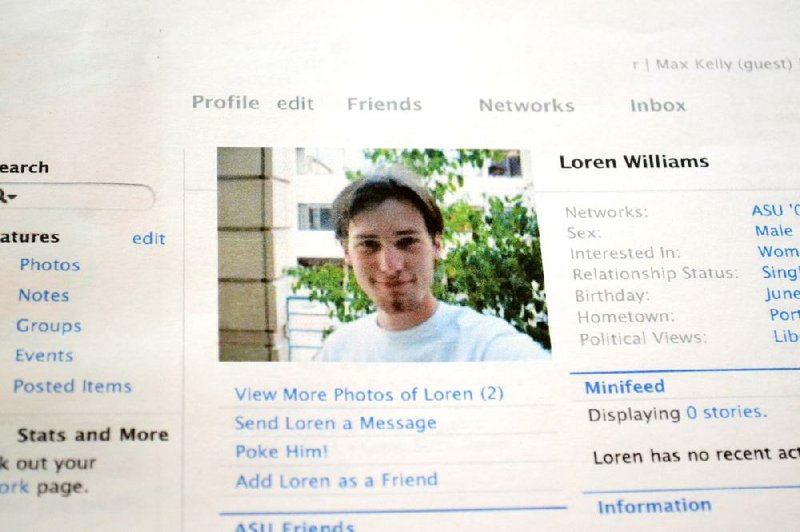WASHINGTON -- A group that urges states to adopt similar laws is pushing for new rules to allow families to gain easier access to a deceased loved one's emails, Web albums and other online accounts
The Uniform Law Commission, which has members appointed by state governments to help standardize state laws, last week endorsed a plan for how to dispose of a person's "digital assets" upon their death.
The commission is urging state lawmakers to enact its proposal so loved ones don't get shut out as Americans' lives move increasingly online. The group said families should immediately get access to everything online belonging to a deceased relative unless otherwise specified in a will.
"Our email accounts are our filing cabinets these days," said Suzanne Brown Walsh of West Hartford, Conn., an attorney who served as chairman of the commission's effort. But "if you need access to an email account, in most states you wouldn't get it."
To become law, the proposed legislation would have to be adopted by each state's legislature. It would trump "terms of service" agreements by tech companies that prohibit people from accessing an account that isn't theirs and declaring electronic records "media neutral" and subject to the same fiduciary rules as nondigital assets.
"This is something most people don't think of until they are faced with it. They have no idea what is about to be lost," said Karen Williams of Beaverton, Ore., who sued Facebook for access to her 22-year-old son Loren's account after he died in a 2005 motorcycle accident.
Facebook and other tech companies have been reluctant to hand over their deceased customers' private data, and many people say they wouldn't want their families to have unfettered access to their lives online. But when confronted with death, families say they need access to settle financial details or simply for sentimental reasons.
What's more, certain online accounts can be worth real money, such as a popular cooking blog or a gaming avatar that has acquired a certain status online.
Privacy activists are skeptical of the proposal.
Ginger McCall, associate director of the Electronic Privacy Information Center in Washington, said a judge's approval should be needed for access to protect the privacy of both the owners of accounts and the people who communicate with them.
"The digital world is a different world" from offline, McCall said. "No one would keep 10 years of every communication they ever had with dozens or even hundreds of other people under their bed."
Many people assume they can decide what happens by sharing certain passwords with a trusted family member or making those passwords part of their will. But in addition to potentially exposing passwords when a will becomes public record, anti-hacking laws and the terms of service agreements prohibit that.
Several tech providers have come up with their own solutions.
Facebook, for example, will "memorialize" accounts by allowing already confirmed friends to continue to view photos and old posts. Google, which runs Gmail, YouTube and Picasa Web Albums, offers its own version: If people don't log on after a while, their accounts can be deleted or shared with a designated person. Yahoo users agree when signing up that their accounts expire when they do.
But the courts aren't convinced that a company supplying the technology should get to decide what happens to a person's digital assets.
In 2005, a Michigan probate judge ordered Yahoo to hand over the emails of a Marine killed in Iraq after his parents argued that their son would have wanted to share them. Likewise, a court eventually granted Williams, the Oregon mother, access to her son's Facebook account, although she said the communications appeared to be redacted.
Williams said she supports letting people decide in their wills whether accounts should be kept from family members.
"I could understand where some people don't want to share everything," she said. "But to us, losing him unexpectedly, anything he touched became so valuable to us.
"If we were still in the era of keeping a shoe box full of letters, that would have been part of the estate, and we wouldn't have thought anything of it."
SundayMonday Business on 07/21/2014

